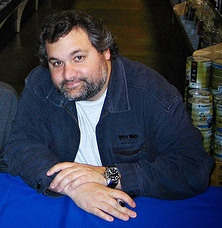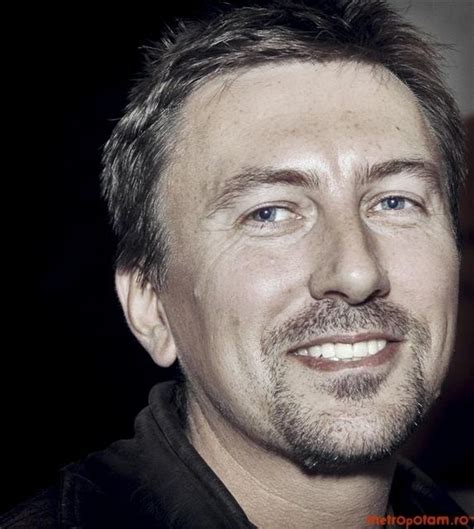A Quote by Noam Chomsky
So if you look at the writings of intellectuals, there are two kinds. One said, l"Look, if we fought harder we could have won.But the others, who were way at the left, people like Anthony Lewis of the New York Times, way out in left stream, his view in 1975 was the Vietnam war began with blundering efforts to do good. But by 1969, it was clear that it was a disaster, that was too costly to us.
Related Quotes
Woody Allen stayed so good because he never left New York. Howard Stern stayed so good because he never left New York - Mel Brooks when he just got out of New York was doing 'Blazing Saddles;' when he left New York he started doing stuff like 'Robin Hood Men In Tights' - he was in L.A. too long. He lost the edge.
Deep thinkers who look everywhere for the mysterious causes of poverty, ignorance, crime and war need look no further than their own mirrors. We are all born into this world poor and ignorant, and with thoroughly selfish and barbaric impulses. Those of us who turn out any other way do so largely through the efforts of others, who civilized us before we got big enough to do too much damage to the world or ourselves.
My father writings stuff was always his personal stuff, like about the day we had to put our dog down, or finding old photographs of his father, or passing a guy he went to boarding school with on a street in New York. Very specific, detailed, descriptive columns that he wrote. I think in a way, it could be argued that my best songs are that way too. They're almost journalistic in that they're very clear, and very specific, and they describe things.
My film isn't about Vietnam. It is Vietnam. It's what it was really like. It was crazy. And the way we made it was very much like the way the Americans were in Vietnam. We were in the jungle, there were too many of us, we had access to too much money, too much equipment and little by little we went insane.
[Saint Anthony] said, in his solitude, he sometimes encountered devils who looked like angels, and other times he found angels who looked like devils. When asked how he could tell the difference, the saint said that you can only tell which is which by the way you feel after the creature has left your company.
A lot of the reason I left New York, in addition to being so broke, was that I just felt I was becoming provincial in that way that only New Yorkers are. My points of reference were really insular. They were insular in that fantastic New York way, but they didn't go much beyond that. I didn't have any sense of class and geography, because the economy of New York is so specific. So I definitely had access and exposure to a huge variety of people that I wouldn't have had if I'd stayed in New York - much more so in Nebraska even than in L.A.
Everything I learned and didn't do in New York I would put into place here in the London West Hollywood. It's fascinating, when you look at the critics' reviews, and we had a great one in the New York Observer and all that, and then the New York Times came and it was a devastation; two stars out of four. They said that I played safe because it wasn't fireworks. Then they judged the persona over the substance that was on the plate.
All our efforts to guard and guide our children may just get in the way of the one thing they need most from us: to be deeply loved yet left alone so they can try a new skill, new slang, new style, new flip-flops. So they can trip a few times, make mistakes, cross them out, try again, with no one keeping score.
In the middle of this it was good to have some moments in which whatever was left of you could sit in silence. When you could remember. When the evidence that had gathered could be sorted. And it was a difficulty if another person imagined these moments were their property. Your life got sliced from two sides like a supermarket salami until there was nothing left in the middle. You were the bits that had been given away right and left to others. Because they wanted the piece of you that belonged to them. Because they wanted more. Because they wanted passion. And you did not have it.
The last publicized center of American writing was Manhattan. Its writers became known as the New York Intellectuals. With important connections to publishing, and universities, with access to the major book reviews, they were able to pose as the vanguard of American culture when they were so obsessed with the two Joes--McCarthy and Stalin--that they were to produce only two artists, Saul Bellow and Philip Roth, who left town.




































